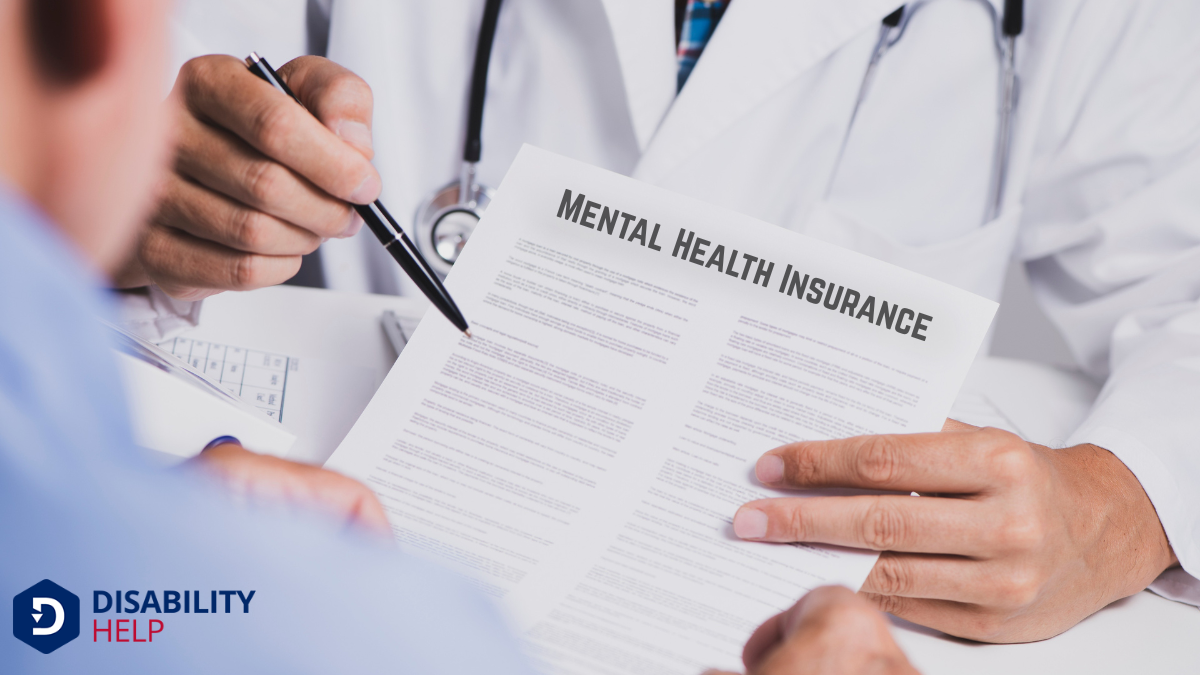Common exclusions in short-term disability policies include pre-existing conditions, self-inflicted injuries, substance abuse, and injuries from illegal activities or high-risk jobs. Pregnancy and maternity leave may have specific waiting periods and coverage limitations. Cosmetic procedures are typically not included unless medically necessary. Employment status, particularly for part-time roles, can impact eligibility and benefit amounts. Understanding these exclusions is essential, and exploring further can reveal more about managing your policy effectively.
Key Takeaways
- Pre-existing conditions often lead to denied claims if the illness or injury existed before the policy's start date.
- Claims for self-inflicted injuries or substance abuse are usually excluded from short-term disability coverage.
- Disabilities resulting from illegal activities or high-risk jobs may not be covered under short-term disability policies.
- Pregnancy-related claims often have waiting periods, and normal childbirth may be excluded from coverage.
- Part-time or seasonal employment might not meet eligibility criteria, impacting benefit payouts.
Understanding Pre-Existing Condition Exclusions
When we talk about pre-existing condition exclusions in short-term disability policies, it’s crucial to understand how they impact coverage. These exclusions can greatly affect our ability to claim benefits. A pre-existing condition typically refers to any illness or injury we'd before our policy started. Insurers use these exclusions to avoid covering conditions that existed prior to the policy’s effective date.
We should carefully review our policy's terms to understand the specific time frame that defines a pre-existing condition. Often, it’s within a certain period before the policy begins, commonly six to twelve months.
The Impact of Self-Inflicted Injuries on Coverage

When we discuss self-inflicted injuries, it’s essential to contemplate how these actions impact short-term disability coverage.
Policies often have strict limitations on self-harm, with the potential for mental health exclusions and specific suicide clauses.
Understanding these aspects helps us better navigate our coverage options and prepare for any unexpected situations.
Self-Harm Coverage Limitations
While short-term disability policies aim to offer financial protection during unexpected health challenges, they often exclude coverage for self-inflicted injuries. This means if we intentionally cause harm to ourselves, the policy typically won’t cover the resulting disabilities.
It's essential for us to understand these limitations as they can greatly impact our financial safety net. Many policies define self-inflicted injuries broadly, often including acts that result from deliberate harm or reckless behavior.
We must carefully review our policy's terms and conditions to fully grasp what’s covered and what’s not. By doing this, we can better prepare ourselves and avoid surprises if we ever need to file a claim.
Let’s make sure we've got all the necessary information to make informed decisions about our coverage.
Mental Health Exclusion Risks
Maneuvering short-term disability coverage can be complex, especially with mental health exclusion risks.
We often find ourselves trying to understand how these exclusions affect us. Let’s break it down:
- Self-Inflicted Injuries: Coverage may be denied if injuries are self-inflicted, even unintentionally, impacting those with mental health struggles.
- Pre-Existing Conditions: If mental health conditions existed before policy enrollment, claims could be rejected.
- Documentation Requirements: Proving a mental health condition often requires extensive documentation, which can be a barrier to receiving benefits.
- Policy Variability: Exclusions and requirements differ by insurer, so it’s essential to thoroughly read our policies to understand specific terms.
Suicide Clause Implications
Understanding the implications of the suicide clause is essential for anyone maneuvering short-term disability policies.
We mightn't realize it initially, but many policies include exclusions for self-inflicted injuries, impacting our coverage when we need it most.
It’s vital to examine these clauses closely. Often, insurers won’t cover disabilities resulting from intentional harm, including suicide attempts, within a specific period, typically the first two years.
How Illegal Activities Affect Disability Claims
When we consider how illegal activities can impact disability claims, we need to be aware of two major factors: criminal acts and substance abuse.
These activities can lead to denied claims, as insurers often exclude injuries incurred during illegal acts or under the influence of drugs or alcohol.
Understanding these exclusions helps us navigate our policies more effectively and avoid unexpected claim rejections.
Impact of Criminal Acts
While it's important to understand the various factors affecting disability claims, one essential aspect is the impact of criminal acts. Engaging in illegal activities can greatly influence our eligibility for short-term disability benefitsFinancial assistance provided to individuals who are unable to work due to a disability, such as Soc....
Let's explore how criminal acts might affect these claims:
- Denial of Benefits: If our disability results from illegal acts, insurers often deny claims. Insurers don't typically cover injuries sustained during unlawful activities.
- Policy Exclusions: Many policies include specific exclusions related to criminal conduct, which means no benefits are payable if we’re involved in such acts.
- Legal Consequences: Engaging in criminal activities may also lead to legal issues, further complicating the claims process.
- Fraud Investigation: Suspicion of fraud due to illegal acts can trigger thorough investigations, delaying or denying benefits.
Understanding these exclusions helps us navigate our policies better.
Substance Abuse Consequences
Substance abuse, particularly when tied to illegal activities, can severely impact our eligibility for short-term disability claims. Insurers often exclude coverage for disabilities arising from illegal drug use or substance-related incidents. If our disability results from such activities, we might find ourselves without financial support. This exclusion aims to discourage illegal behavior and guarantee that coverage aligns with responsible conduct.
We must recognize that insurers view substance abuse as a preventable risk. They argue that if we knowingly engage in illegal activities, we assume the consequences, including the potential denial of benefits.
To protect ourselves, we should seek help for substance abuse issues and guarantee our actions don't jeopardize our coverage. Let's prioritize our health and legal responsibilities to maintain our eligibility.
Pregnancy and Maternity Leave Considerations
Though it's important to understand the nuances of short-term disability policies, we must pay special attention to how they intersect with pregnancy and maternity leave. Many of us wonder how these policies apply, so let's break it down clearly.
- Coverage Start Date: Some policies require a waiting period before pregnancy-related claims are eligible. It's vital to verify this period in your policy.
- Maternity Leave Duration: Policies might cover only a specific number of weeks for childbirth recovery, so know your policy's details.
- Pregnancy Complications: Coverage for complications may differ from routine maternity leave, often requiring additional documentation.
- Exclusions: Certain policies might exclude normal childbirth or routine maternity leave, emphasizing the need to clarify these exclusions beforehand.
Understanding these elements helps us navigate our coverage effectively.
Coverage Limitations for Mental Health Conditions

Maneuvering the coverage limitations for mental health conditions in short-term disability policies can be challenging, yet it's vital for us to understand these nuances. Many policies include specific exclusions or limitations on mental health coverage.
Often, they impose maximum benefit periods or waiting periods that differ from those for physical health conditions. It's essential for us to review our policy details to pinpoint these distinctions.
Some insurers might require additional documentation or proof of treatment from mental health professionals. Furthermore, terms like "pre-existing conditions" might affect eligibility.
The Role of Occupational Hazards in Exclusions
While understanding mental health coverage limitations is important, examining how occupational hazards impact exclusions in short-term disability policies is equally necessary.
We need to grasp how these exclusions work to make informed decisions. Let’s break down some common scenarios:
- High-Risk Jobs: If our profession involves significant risks, like construction or firefighting, policies might exclude injuries that are work-related.
- Safety Protocols: Failing to follow safety procedures could lead to denied claims, emphasizing the importance of workplace rules.
- Equipment Use: Injuries from using non-standard equipment may not be covered, prompting us to use approved tools only.
- Training Deficiencies: Lack of training could result in exclusions, so let’s ascertain we’re properly trained.
Understanding these factors helps us navigate our policies effectively.
Substance Abuse and Its Effect on Benefits
When considering the impact of substance abuse on short-term disability benefits, it's vital to understand how insurers view these situations.
Generally, insurers are cautious with claims linked to substance abuse, often excluding them from coverage. They might argue that disabilities arising from substance use are preventable and self-inflicted, therefore not fitting the criteria for benefits.
We should be aware that some policies may offer limited exceptions, especially if the individual is actively seeking treatment or if the condition is medically diagnosed as a disorder.
It's important to review our policy details to comprehend any specific exclusions or requirements. By understanding these nuances, we can better navigate our coverage and guarantee we're adequately protected in cases involving substance-related disabilities.
Navigating Limitations Related to Cosmetic Procedures

Understanding how substance abuse impacts our benefits helps us prepare for another area often overlooked: cosmetic procedures. Short-term disability policies typically exclude coverage for disabilities caused by elective cosmetic surgeries.
Let's explore what this means for us:
- Elective Nature: Procedures for aesthetic purposes, like facelifts or liposuction, usually aren't covered since they're not medically necessary.
- Medical Necessity: If a cosmetic procedure is deemed necessary due to a health condition or accident, coverage might be possible. Documentation is key.
- Recovery Time: Any disability resulting solely from recovery after elective surgery often doesn't qualify for benefits.
- Pre-approval: Before any procedure, contacting our insurer for clarity on coverage can prevent misunderstandings and financial surprises.
Understanding these nuances helps us navigate our policies wisely.
The Implications of Part-Time or Seasonal Employment
As we explore the implications of part-time or seasonal employment on our short-term disability benefits, it's clear these work arrangements can present unique challenges.
We often find that eligibility criteria for short-term disability benefits require a certain number of hours worked per week or a minimum duration of continuous employment. Part-time and seasonal roles mightn't meet these thresholds, potentially impacting our ability to qualify for benefits.
Moreover, many policies calculate benefits based on our average income, which could be lower if we're in part-time roles. This can result in reduced benefit payouts when we need them most.
It's essential that we carefully review our policy terms and engage with our HR departments to fully understand how our employment status affects our coverage.
Conclusion
In traversing short-term disability policies, we must stay informed about common exclusions like pre-existing conditions, self-inflicted injuries, and illegal activities. Let’s remember that pregnancy, mental health, and substance abuse can also impact our coverage. Occupational hazards and cosmetic procedures often come with their own limitations, too. It’s essential to understand how part-time or seasonal employment may affect our benefits. By being proactive, we can guarantee we’re adequately prepared and covered when we need it most.






